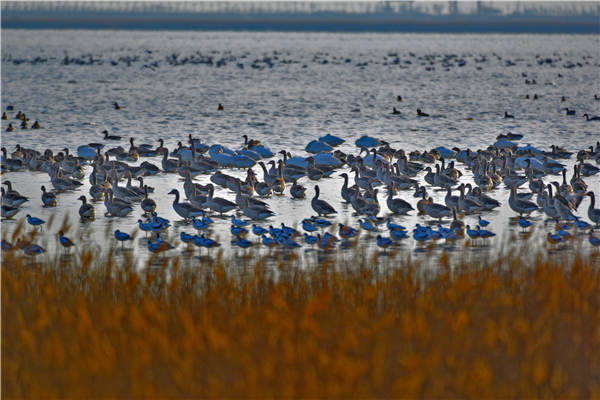The change is good for their rest


His eight years of endeavor has helped Ximaoli Lake to purify from Class V to Class III in terms of water quality, and, at its best, it sometimes reaches Class II. The restoration of the ecosystem has attracted the swans that disappeared for many years, and has also lured some nationally first-class protected animals such as the Chinese Merganser and black stork.
Lei says that around 250 species of water bird travel between breeding and wintering sites every year.
In this magnificent migration, the wetlands in China serve as the "gas stations" during their journey, but human activities continue to encroach the habitats of these migratory birds.
"From a macro perspective, the number of migratory birds passing through our country has shown a downward trend, and only in a few certain species do we see a small increase in population number.
"Take the scaly-sided Merganser duck, marked as endangered on the Red List of the International Union for Conservation of Nature as an example, they prefer to survive winter near fast-flowing rivers and dive for fish. Their population is greatly affected by the river water environment and has declined by 50 percent in the past 10 years," Lei said in a recent interview with Xinhua.
The Spoon-billed Sandpiper is a critically endangered species on the IUCN Red List. Lei said the species breeds in the Arctic Circle. In the cold winter, they fly to southern China and Southeast Asia and make pit stops in the Bohai and Yellow Sea areas. The destruction of tidal flat wetlands has been pushing this species to the brink of extinction. Spoon-billed Sandpipers are decreasing at a rate of 26.4 percent year-on-year from 2002 to 2010, and there are only around 600 left. Some scientists even worry that this species will disappear from the earth by the end of 2020.




































